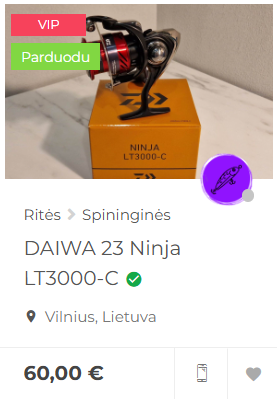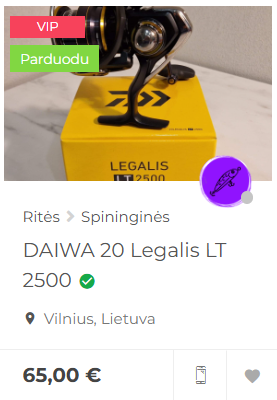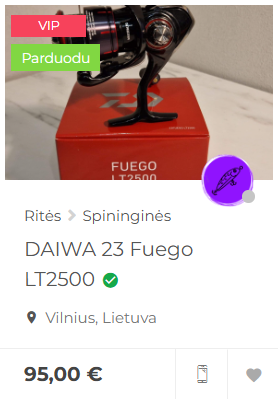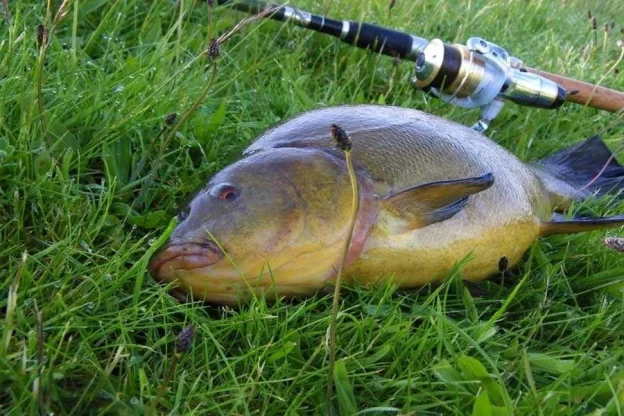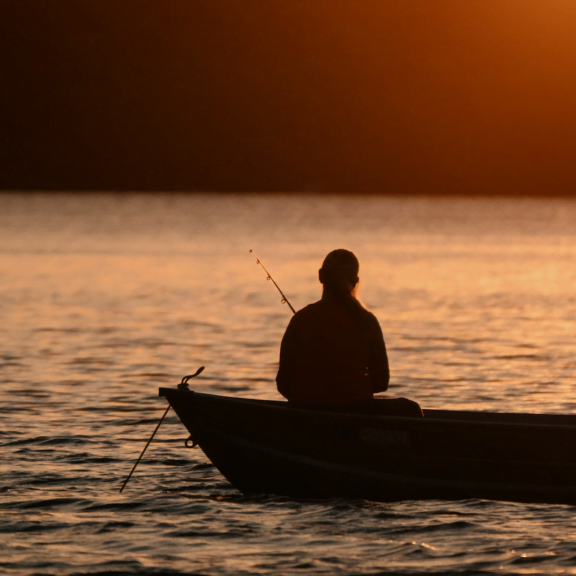Pensioners, like all fishermen, are subject to general fishing rules in Lithuania, but they also have the opportunity to receive certain benefits or exceptions. Below are the basic rules, prohibitions and requirements that apply to retirees who wish to fish inland waters.
Free Fishing Right
Pensioners in Lithuania are granted the right to fish for free all year round in state water bodies, where amateur fishing is not prohibited and limited fishing is not organized. This means that in state lakes and other bodies of water that are not private or limited access, retirees can fish without additional fees or special permits.
This rule allows people of retirement age to become more actively involved in fishing without creating additional financial barriers. However, it is important to note that pensioners, like all other fishermen, are subject to other requirements and restrictions in the fishing regulations regarding the amount of gear, species and sizes of fish.
Number of tools allowed
Fishing rules The standard restrictions on the use of amateur fishing gear apply to pensioners:
- No more than 4 recreational fishing gear may be used at one time, including no more than 2 fishing gear.
- When fishing from a watercraft, no more than 2 rods are allowed unless the boat is stopped by an anchor or other means.
- The total number of hooks must not exceed 6 units, and when fishing for pike or sable - up to 12 hooks.
These restrictions help control fishing intensity and maintain fish stocks.
Seasonal and fish size bans
Retirees, like all anglers, are subject to certain seasonal fishing restrictions that protect fish populations during spawning:
Seasonal fishing bans
- pike (Esox lucius) from February 1. until April 30;
- fertilizer (Sander lucioperca) from March 1 until May 31;
- salad (Aspius aspius) from April 1 until May 15;
- groin (Thymallus thymallus) from March 1 until May 15;
- brown trout (Salmo trutta fario) from October 1 until December 31;
- when (Coregonus lavaretus) from October 1 until December 31;
- burdock root (Lotta lotta) from December 15 until January 31;
- hawk (Vimba vimba) from May 15 until June 15;
- narrow pincers crayfish from October 15. until July 15;
- bream (Abramis brama) from April 20 until May 20 in water bodies located in the territory of the Nemunas Delta Regional Park (except for bream fishing in polders);
- catfish (Silurus glanis) from November 1 until April 1
- eel (Anguilla anguilla) in the Curonian Lagoon.
These bans ensure that fish can successfully spawn and preserve populations for the future. As with all anglers there are size limits.
Permissible fish sizes
- catfish (Silurian glans) 75 cm;
- salmon (Salmo salar) 65 cm;
- slag (Salmo trutta trutta) 65 cm;
- salad (Aspius aspius) 55 cm;
- burdock root (Lotta lotta) 45 cm;
- mustache (Beard beard) 45 cm;
- fertilizer (Sander lucioperca), from 2024 it is prohibited to take smaller than 50 cm and larger than 65 cm;
- pike (Esox lucius), from 2024 it is prohibited to take smaller than 50 cm and larger than 80 cm;
- groin (Thymallus thymallus) 30 cm;
- brown trout (Salmo trutta fario) from 2024 it is forbidden to take any size;
- shad (Leuciscus cephalus) 30 cm;
- girls (Leuciscus idus) 30 cm;
- rope (Tinta tinta) 25 cm;
- carp (Cyprinus carpio) 40 cm;
- white carp (Ctenopharyngodon idella) 40 cm;
- mottled broadbills (Artistichtys nobilis) 40 cm;
- narrow forceps crayfish (Astacus leptodactylus) 10 cm.
Environmental protection requirements
Pensioners must also comply with cleanliness and environmental protection requirements during fishing:
- Before fishing, anglers must collect trash within a 5-meter radius of the fishing area and ensure that all trash is disposed of in appropriate waste containers at the end of fishing.
- After catching tagged fish or fish of invasive species, it is necessary to notify the Department of Environmental Protection or the Fisheries Service, indicating the location, date and other important information of the catch.
Liability for violations of fishing regulations
Pensioners, like all recreational fishermen, must pay damages if the fish or crayfish caught do not meet the requirements set by the rules. Fish caught in violation of the regulations or during the ban must be immediately released back into the pool, and fines are applied for the damage caused, calculated according to the description of the procedure for the protection of fish stocks. You can find all fishing regulations of the Republic of Lithuania here.

